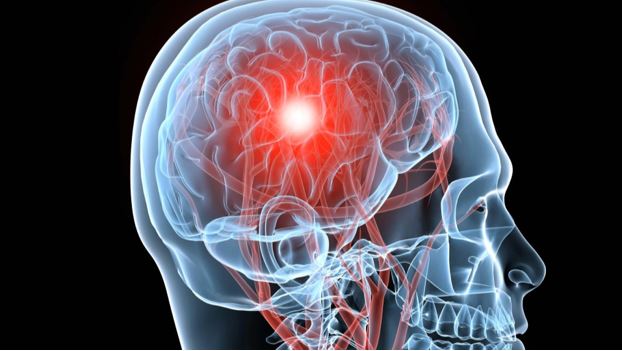A traumatic brain injury (TBI) can drastically alter the lives of both the injured person and their family members. The aftermath of a TBI is often overwhelming, and families may struggle with the emotional, financial, and logistical challenges that come with caring for a loved one.
Rafi, Brown, and Stokes, a Georgia personal injury law firm, specializes in TBI cases and offers guidance to help families navigate this difficult time. Here’s a comprehensive guide on what to do after a loved one suffers a traumatic brain injury.
Understand the Different Types of TBIs
TBIs can be categorized as mild, moderate, or severe, depending on factors like consciousness loss, brain scans, and symptoms. It’s important to understand the type and severity of TBI your loved one has sustained, as this will inform their treatment plan and the level of care they may require.
Our attorneys at Rafi, Brown, and Stokes work with medical experts to evaluate the specific type of TBI and its impact on daily life. By understanding the medical intricacies of each case, we can better support families and build stronger legal claims that address the unique challenges of each TBI.
Document Symptoms and Behavioral Changes
After a TBI, your loved one may experience a range of symptoms, from memory loss and confusion to mood swings and physical limitations. Keep a detailed record of these symptoms, as well as any changes in behavior or cognitive function. This documentation can help healthcare providers adjust treatment plans and also serves as valuable evidence in legal claims.
Rafi, Brown, and Stokes encourages families to maintain a journal detailing daily observations. This information can illustrate the TBI’s impact on the victim’s life, providing a comprehensive picture that strengthens the case for compensation.
Explore Treatment and Rehabilitation Options
Recovery from a TBI often requires a multi-faceted approach, including physical therapy, occupational therapy, speech therapy, and psychological support. Consulting with specialists can help create a tailored rehabilitation plan that addresses the unique needs of your loved one.
Our attorneys assist families in navigating the healthcare system to ensure they have access to the necessary resources for recovery. Rafi, Brown, and Stokes collaborates with healthcare professionals to secure appropriate treatments and advocate for compensation that covers long-term rehabilitation needs.

Investigate the Cause of the Injury
Understanding how the TBI occurred is critical to pursuing a legal claim. Whether the injury resulted from a car accident, fall, or act of negligence, identifying the cause and responsible party is essential. Thorough investigations can reveal details that strengthen the case for compensation and hold negligent parties accountable.
Rafi, Brown, and Stokes conducts comprehensive investigations for TBI cases, gathering evidence such as accident reports, witness statements, and surveillance footage. By pinpointing the exact cause of the injury, we help families pursue justice and secure the compensation needed to support their loved ones.
Consult with a TBI Specialist
TBI cases often require specialized medical expertise to assess the full extent of the injury and potential long-term impacts. Consulting with a neurologist or TBI specialist can provide valuable insights into the prognosis, necessary treatments, and any limitations your loved one may face.
Our firm works closely with TBI specialists who provide detailed evaluations for legal claims. Rafi, Brown, and Stokes ensures that these expert insights are included in the case, helping to demonstrate the profound impact of the injury on the victim’s life and increasing the likelihood of fair compensation.
Review Insurance Coverage and Benefits
After a TBI, families may need to review insurance policies to determine what benefits are available for medical treatment and long-term care. Health insurance, car insurance, and disability insurance may all offer resources to help with treatment costs. It’s essential to understand the coverage limits and any exclusions that may apply.
Rafi, Brown, and Stokes assists families in understanding their insurance policies and exploring all available options for financial support. Our attorneys negotiate with insurers to secure the maximum benefits available, helping alleviate the financial burden associated with TBI recovery.

Prepare for Potential Long-Term Care Needs
Severe TBIs can lead to long-term or permanent disabilities, requiring ongoing medical care, therapy, and support. Preparing for these needs early on can help families avoid financial strain and ensure their loved one receives consistent care.
Our team at Rafi, Brown, and Stokes calculates the anticipated costs of long-term care, working with financial planners and healthcare providers. We advocate for compensation that covers these expenses, allowing families to focus on their loved one’s recovery without financial stress.
Seek Emotional and Psychological Support for Family Members
Caring for a loved one with a TBI can be emotionally challenging. Family members may experience stress, anxiety, and grief as they navigate the changes in their loved one’s condition. Seeking support from counseling or support groups can provide valuable emotional relief and coping strategies.
Rafi, Brown, and Stokes recognizes the emotional toll of TBI cases and connects families with mental health resources. Our compassionate approach ensures that families feel supported throughout the legal process, giving them the tools to handle the challenges they face.
Consult with an Experienced TBI Attorney
Pursuing a legal claim for a TBI case requires experienced legal guidance, as these cases often involve complex medical evidence and high stakes. Consulting with a knowledgeable attorney can help families navigate the legal process, protect their rights, and secure the compensation needed for recovery.
Rafi, Brown, and Stokes has a proven track record in TBI cases, advocating for fair compensation and holding negligent parties accountable. Our attorneys handle all aspects of the case, from evidence gathering to negotiations, allowing families to focus on supporting their loved one.

Understanding the Types of Compensation for TBI Cases
In Georgia, families may be entitled to various types of compensation after a loved one suffers a TBI. Understanding the available damages can help families pursue adequate support for their loved one’s recovery. Common types of compensation include:
1. Medical Expenses
Compensation for medical expenses includes hospital stays, surgeries, rehabilitation, and ongoing treatment. Our attorneys ensure that all current and future medical needs are covered in the claim, providing peace of mind for families facing extensive healthcare costs.
2. Lost Wages and Earning Capacity
If the injury affects the victim’s ability to work, families may seek compensation for lost wages and diminished earning capacity. Rafi, Brown, and Stokes calculates the financial impact of lost income, advocating for compensation that reflects the long-term economic effects of the injury.
3. Pain and Suffering
Pain and suffering damages account for the physical and emotional impact of the injury on the victim’s life. These damages are essential in TBI cases, as they address the profound lifestyle changes that often accompany brain injuries. Our firm presents compelling evidence of these impacts to support fair compensation.
4. Loss of Consortium
Loss of consortium refers to the emotional and relational losses experienced by close family members. This compensation acknowledges the impact of the injury on family dynamics, such as the loss of companionship, support, and intimacy in relationships.
Supporting Your Family’s Journey with Rafi, Brown, and Stokes
A traumatic brain injury can reshape the lives of both the victim and their family. Navigating the medical, emotional, and financial challenges of a TBI requires resilience, support, and knowledgeable legal guidance.
When you are ready to take action, contact Rafi Law Firm at 404-800-1156 to start your free consultation with our Atlanta car accident lawyers.





